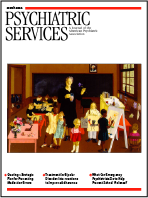Combating AIDS: Communication Strategies in Action
HIV infection has been documented in virtually every country in the world, and the epicenter of the epidemic has moved to resource-poor countries. Combating AIDS: Communication Strategies in Action offers a broad perspective on attempts to contain this global HIV epidemic. Based on the authors' own work and experiences, the book examines primarily strategies adopted by Brazil, India, Kenya, South Africa, Thailand, and, to a lesser extent, Cambodia, Tanzania, Uganda, the United States, and Zambia.
The variability described by the authors in different geographic approaches lends itself to examination of many controversial questions, such as How does HIV break out of high-risk groups and enter the general population? What are the most effective population-based strategies for reducing HIV transmission? How can prevention be tailored to specific groups and local culture? How can communication theory and the media be used most effectively to convey prevention messages? What governmental responses have helped or hindered in containing the epidemic and its impact? And, finally, What factors influence the manufacture and distribution of generic antiretroviral medications? The authors offer illuminating commentary on each of these questions, giving health and mental health researchers and clinicians an opportunity to step back from the heavily biomedical or clinical focus of their work and see its place in the larger global framework.
Combating AIDS strongly emphasizes the value of community involvement in creating innovative prevention approaches and reducing stigma. Its detailed account of how HIV first spreads among specific risk groups—for example, truck drivers, commercial sex workers, gay men, and intravenous drug users—and then makes its way into the larger population is particularly informative. The descriptions of entertainment and education programs shed light on how to make HIV-prevention messages engaging, fun, and even erotic. The value of ethnographic, qualitative, and participatory research methods is cogently presented, as is the argument for empowering local people in planning their own change processes. The authors emphasize that biomedically dominated prevention programs focused on individual behavioral change are less effective than multidisciplinary approaches that incorporate the social sciences, a public health perspective, and communication theory. Moreover, approaches that involve local populations and their leaders have the best chance of engendering the political will and resources needed to fight this epidemic.
Structuring a narrative that has such ambitious goals is not an easy task. It is perhaps for this reason that I experienced the book as somewhat disjointed, jumping back and forth between countries and topics. And this is not a text that one can turn to for precise explanations of HIV-related medical approaches: the authors are not physicians, and this topic is not at the heart of what the book is about. But the reader who wants to learn about how governments, local communities, and communication science can be enlisted in the fight against HIV will find Combating AIDS to be a very rewarding read.
Dr. Cournos is chair of the American Psychiatric Association's committee on AIDS and professor of clinical psychiatry at Columbia University in New York City.



